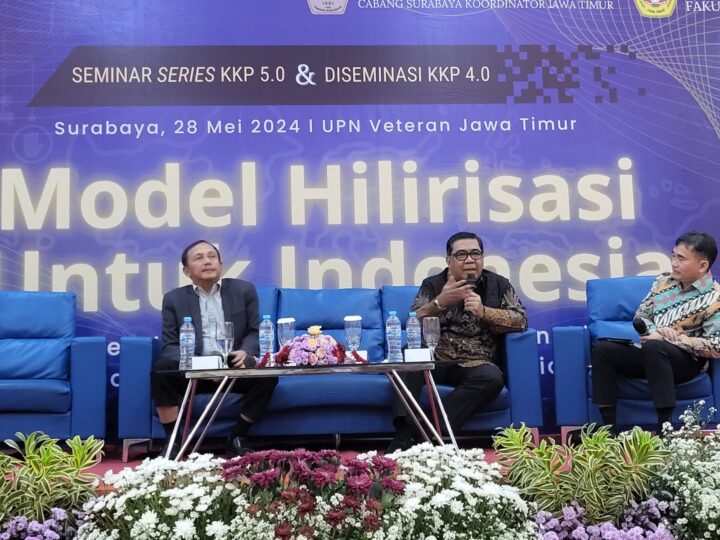
Kadin Proposes 7 Marine and Fisheries Downstream Strategies
The Indonesian Chamber of Commerce and Industry (Kadin) proposes 7 downstream strategies for the marine and fisheries sector that can be carried out by the government. This was conveyed by the Deputy Head of the MSME Development Agency, People's Economy of Kadin Indonesia, Yugi Prayanto, in Surabaya, Tuesday (28/05/2024).
"The strategy is based on an analysis of the challenges, obstacles, and potentials that exist in the marine and fisheries sector," he said.
Downstream Strategy
Yugi explained that seven downstream strategies are needed to increase the volume and value of Indonesia's fisheries and marine exports.
First, alignment and harmonization of existing regulations so that they are more effective and efficient both between institutions, ministries and regions.
Second, build a national fish logistics system. Third, expand the fisheries processing industry (fish processing unit/UPI).
Fourth, facilitate funding schemes for fisheries production and processing. Fifth, shorten the distribution channel from UPI to end consumers for logistics cost efficiency.
Sixth, increase the sales of frozen products to the retail market. Seventh, encourage the industry to make products that are easy to cook at home.
BPS Data Results
Throughout 2021, BPS data recorded that the average national fish consumption reached 55.37% kg/capita. This figure increased from 2020 which reached 54.56 kg/capita.
Meanwhile, shrimp and skipjack tuna are the leading commodities in the fisheries sector based on value and volume. Meanwhile, other potential products based on value include crabs, squid-cuttlefish and seaweed.
The volume and value of fishery exports in 2021 also recorded changes compared to 2020. The volume in 2021 was recorded at 1.22 million tons, while in 2020 it reached 1.26 million tons.
However, in terms of value, fisheries exports in 2021 reached US$5.72 billion, an increase from US$5.21 billion in 2020.
Obstacles and Challenges
Yugi assessed that the obstacles and challenges in the marine and fisheries sector are no less difficult. First, the main problem of the fisheries processing industry is the lack of raw materials.
Second, if raw materials are available, the price is higher than competing countries such as India, Vietnam, Equador, and other countries. Third, there are many central and local government regulations, especially in aquaculture and capture fisheries.
"This hampers fisheries production. For example, PP 85 of 2021. So regulations should be comfortable to implement," he said.
Fourth, the majority of fishery products are traded in fresh form so that quality is difficult to maintain. Fifth, the selection of fishery products is not good. Because not all fishery products are increasingly processed the more added value.
"For example, there are types of fish that are more valuable when sold whole, rather than in fillets. Such as Grouper and Bawal. And the sixth is the inadequate funding scheme," he explained.
Indonesia's potential
Indonesia, said Yugi, is a maritime country with significant fisheries potential and contribution to the world. Not only is it a habitat for various species of fish, but the archipelago's seas are also the foundation of people's lives with various types of businesses.
Quoting Katadata, Indonesia has the largest archipelago area of 1,904 thousand km2. In addition, Indonesia is a supplier of 10% of the world's fishery commodities.
Indonesia is also the center of the fisheries, shipping, and tourism business. It has the second longest coastline in the world after Canada (202 thousand km), with a length of 55 thousand km.
BPS data also recorded that 7.9 million poor people depend on the sea. Meanwhile, 54% of the national animal protein comes from fish. Even 37% of coral reef fish species and 76% of the world's coral species are in Indonesia.